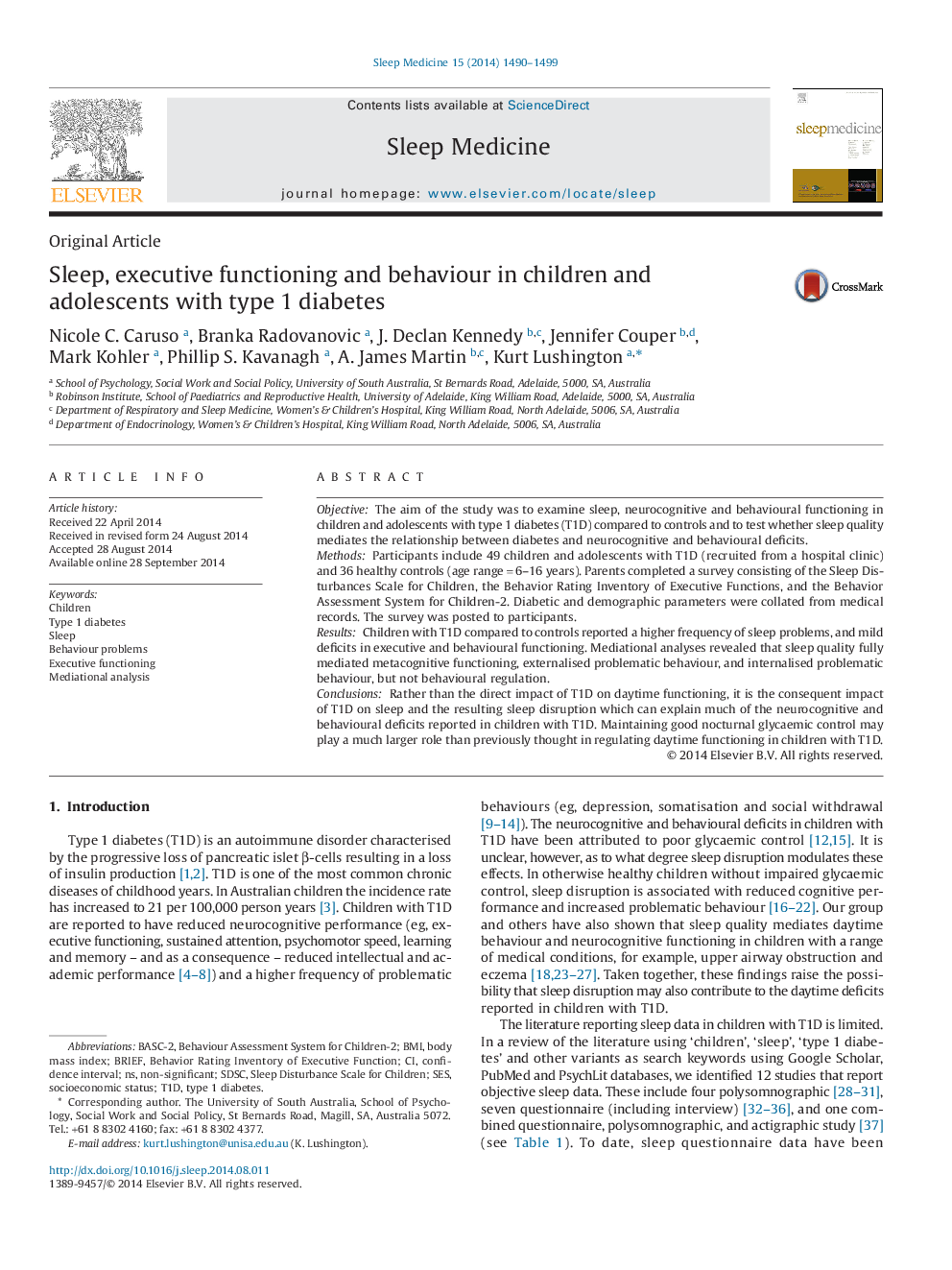| کد مقاله | کد نشریه | سال انتشار | مقاله انگلیسی | نسخه تمام متن |
|---|---|---|---|---|
| 3176013 | 1200240 | 2014 | 10 صفحه PDF | دانلود رایگان |
• We assessed behaviour, sleep, and executive functioning using parental report in children with type 1 diabetes (T1D) versus healthy controls.
• Children with T1D had more problems with sleep initiation, sleep maintenance, and daytime sleepiness.
• Children with T1D had mild deficits in behaviour and executive functioning.
• Sleep quality was found to mediate deficits in behaviour and executive functioning.
• The impact of T1D on sleep can mostly explain the neurocognitive and behavioural deficits in children with T1D.
ObjectiveThe aim of the study was to examine sleep, neurocognitive and behavioural functioning in children and adolescents with type 1 diabetes (T1D) compared to controls and to test whether sleep quality mediates the relationship between diabetes and neurocognitive and behavioural deficits.MethodsParticipants include 49 children and adolescents with T1D (recruited from a hospital clinic) and 36 healthy controls (age range = 6–16 years). Parents completed a survey consisting of the Sleep Disturbances Scale for Children, the Behavior Rating Inventory of Executive Functions, and the Behavior Assessment System for Children-2. Diabetic and demographic parameters were collated from medical records. The survey was posted to participants.ResultsChildren with T1D compared to controls reported a higher frequency of sleep problems, and mild deficits in executive and behavioural functioning. Mediational analyses revealed that sleep quality fully mediated metacognitive functioning, externalised problematic behaviour, and internalised problematic behaviour, but not behavioural regulation.ConclusionsRather than the direct impact of T1D on daytime functioning, it is the consequent impact of T1D on sleep and the resulting sleep disruption which can explain much of the neurocognitive and behavioural deficits reported in children with T1D. Maintaining good nocturnal glycaemic control may play a much larger role than previously thought in regulating daytime functioning in children with T1D.
Journal: Sleep Medicine - Volume 15, Issue 12, December 2014, Pages 1490–1499
